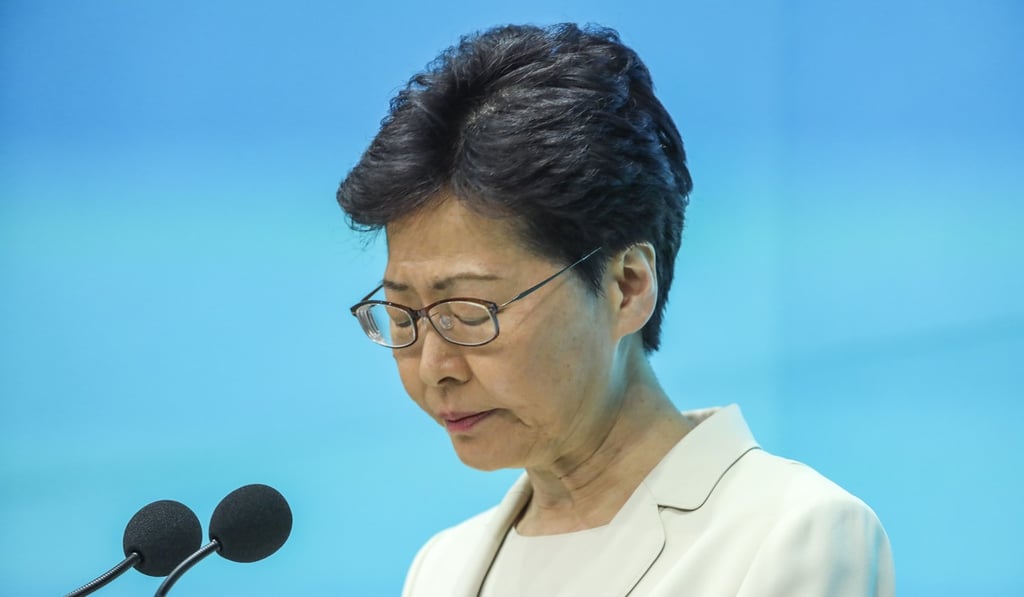Commerce chief Edward Yau dodges questions on whether he’ll be next chief executive, as rumours swirl he’s among favourites to replace Carrie Lam
- Secretary for commerce and economic development says priority is for government to learn lessons of extradition bill crisis
- Yau calls talk surrounding his future absolutely unnecessary

Commerce and Economic Development Bureau chief Edward Yau Tang-wah has dodged questions over whether he might be Hong Kong’s next leader.
Yau was rumoured to be among the favourites to replace Chief Executive Carrie Lam Cheng Yuet-ngor should she not survive the present extradition bill crisis, but on Thursday he said the priority was for the government to learn from the events of the past 10 days.
Lam admitted on Tuesday that she faced difficulties in governing the city for the remainder of her five-year term, which ends in 2022, even after apologising for and suspending the controversial legislation. Asked if he would run in the next chief executive election race, Yau said: “This is absolutely an unnecessary question.”

Yau, who had also been rumoured to be in the running to replace Chief Secretary Matthew Cheung Kin-chung as Lam’s deputy last year, something the government denied, said the administration’s priorities should be on fixing its relationship with the public.
“The government is facing a difficult time,” he said. “We need to learn lessons from the inadequacy in administration. I hope the public will give us some space to complete our work on hand.”